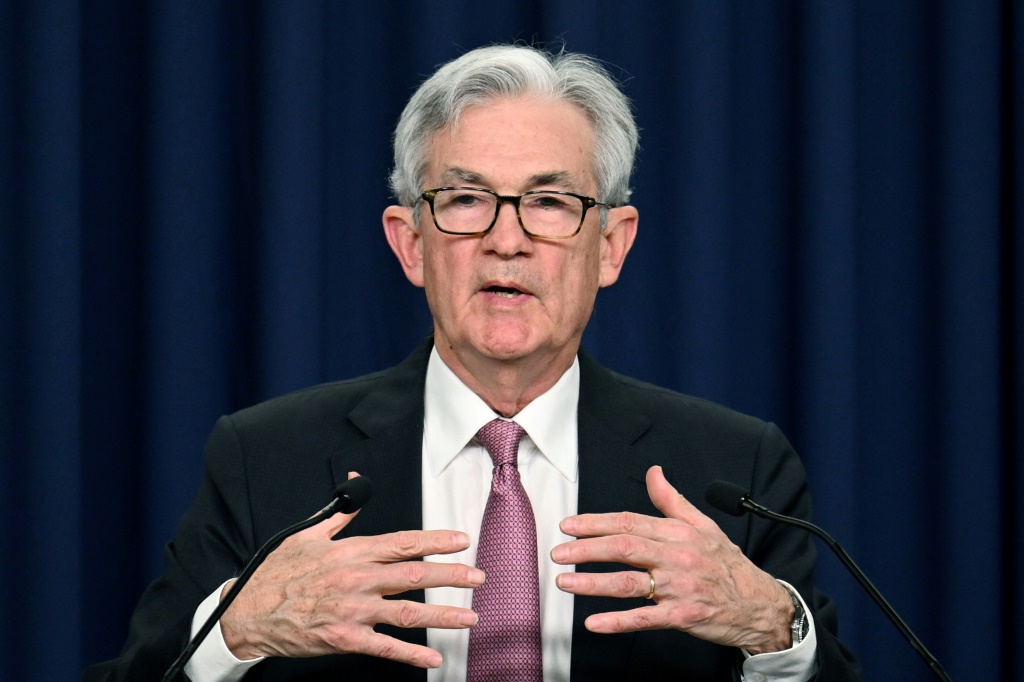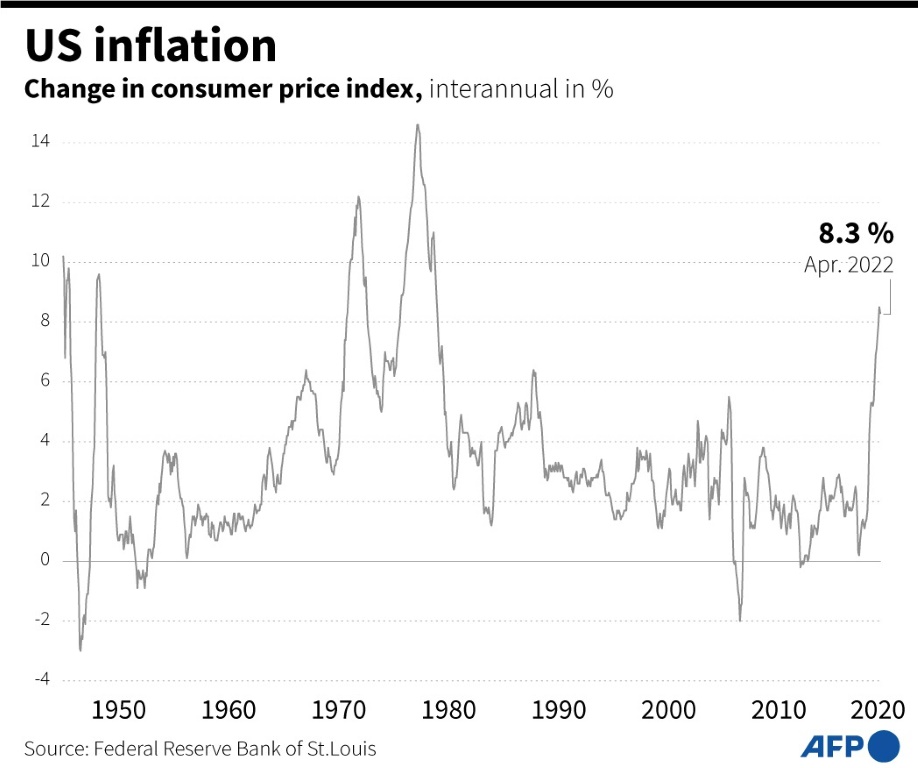The US Senate on Thursday confirmed Jerome Powell to a second term as head of the Federal Reserve, as the central bank ramps up its fight to crush soaring inflation.

The vote came amid inflation that has hit a 40-year high, fueled by the conflict in Ukraine and sanctions imposed on Russia, as well as Covid-19 restrictions in China that have raised concerns the global supply snarls may worsen.
The Fed chair has said his primary focus is on getting inflation under control, but acknowledged the effort could be painful.
US President Joe Biden, whose popularity has taken a hit from the soaring inflation and record gasoline prices, has repeatedly said that tackling the issue is primarily a job for the Fed.
“I am pleased to see the Senate take a step forward on my agenda to get inflation under control by confirming my nominees to the Fed,” he said in a statement after the vote.
Powell, who first joined the Fed board in 2012, led the central bank as it slashed the benchmark interest rate to zero at the start of the pandemic in March 2020 and pumped money into the financial system to prevent a severe downturn in the world’s largest economy.
Now, he is overseeing efforts to cool price pressures affecting American families.
The Fed last week announced its largest rate hike since 2000 and signaled similar increases were likely in the coming months.
The challenge for Powell and the Fed is to turn down the heat on inflation without tipping the United States into recession.
While he has expressed confidence the economy is strong enough to withstand the tighter monetary policy, Powell said it will be challenging amid the unprecedented global shocks and “may actually depend on factors that we don’t control.”
In an interview with Marketplace on Thursday, he renewed his warning that “the process of getting inflation down to two percent will also include some pain.”
But “the most painful thing would be if we were to fail to deal with it and inflation were to get entrenched in the economy at high levels.”
– Delayed confirmation –
Powell, a Republican, enjoyed broad bipartisan support in the 80-19 vote — but also bipartisan opposition. Six Democrats voted against him, including progressive senators Bernie Sanders and Elizabeth Warren, who established the Consumer Financial Protection Bureau.

“Working families should not bear the cost of fighting inflation,” Warren tweeted after the vote. “As Fed Chair, Jerome Powell must focus on strengthening our economy without slamming the brakes on its growth or hurting families already struggling with higher prices.”
Powell had continued at the helm of the central bank even after his first four-year term officially expired February 4.
His confirmation was delayed by the battle to approve Lisa Cook to join the Fed board — the first Black woman to serve in the post — who was finally confirmed on Tuesday with only Democratic votes.
The Senate late Wednesday also confirmed Philip Jefferson to the board, marking the first time the institution has had more than one Black governor.
With the latest additions, the Fed board will be just one short of its full complement of seven governors.
In his statement, Biden urged the Senate to confirm his final nominee, Michael Barr, as vice chair for supervision.
The US president’s first pick for the role of top Fed banking cop, Sarah Bloom Raskin, withdrew her name from consideration in March when it became clear she would not have sufficient support due to opposition from Republicans and from a key Democratic lawmaker over her stance on climate change issues in banking supervision.
Cook, a professor of economics and international relations at Michigan State University, and Jefferson, of Davidson College, each have researched inequality in the labor market.
Powell has repeatedly stressed the importance of ensuring economic opportunities extend to disadvantaged groups — a notable change of focus in an economy where Black workers face far higher unemployment rates than other racial groups.
Jefferson is only the fourth Black man to serve as a Fed governor.









